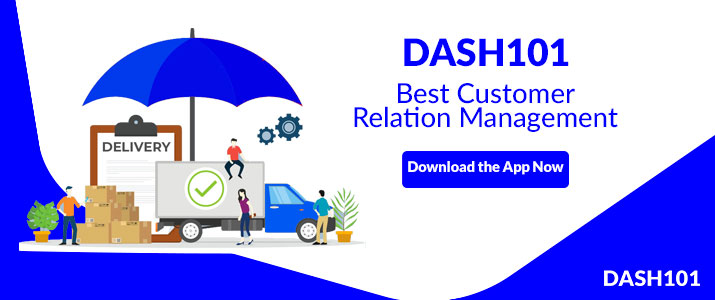Logistics and supply chain management may sound like important terms in any eCommerce. But the question is how exactly do they contribute?
What is eCommerce Logistics?
Logistics is, in simple words, the transportation of goods or information from one place to another. It involves transportation, inventory, supplies, inventory, warehousing, etc. Supply chain management refers to the process involved in product distribution.
India has a vast geographical area and complex demographics. As a result, there is a need for an improved eCommerce logistics management structure. This includes a strategic plan to ensure the smooth movement of goods and informed knowledge about transport laws. Forecasting road conditions will ensure a smooth delivery.
Logistics is the transport of goods to customers. But, when commerce goes online, the Warehousing activity is complex. While the activity seems like a straight path, it does have added stops. Few of which include:
Inbound and Outbound Logistics
It attends to the incoming transportation and storage of goods. The transit of goods need not be in the manufacturing unit, rather it can be while in motion too. This includes trucks, air carriers, cargo rail, or ships. The index of a well-heeled trade allows efficient logistics and delivery.
Outbound logistics – This refers to the strategic planning and execution of the supply of goods to the consumer. In short, it deals with the export activity of transportation and storage.
Inventory Management
Inventory management is a structured process of sourcing, storage, and supply of inventory. It includes raw materials and finished goods of a business. A well-ordered inventory guarantees parallel availability and demand at a low cost.
Warehousing
It is the operation that stores goods for further distribution. The nature of a business determines the type of warehouse. Small businesses store goods in a space that is smaller in size. Whereas larger business stores their products in rented storage space.
Packaging
The packaging is the appearance of a product. It’s the product’s identity. It includes labeling, size, durability, and easy access to open or close the product. It is the first most important step before distribution.
Labeling
It is the next step after packaging. It gives complete information about the product. Labeling falls under the bracket of certain laws. Again, labeling differs on the nature of the product. Quantity, ingredients, volume, price, manufacturing date, expiry date, shelf life, place, etc.
Billing
It is the process of creating and issuing the invoices to the concerned units. In eCommerce logistics, it acts as a verified document. It holds proof of an agreed price decision between the manufacturer and the end consumer. Billing acts as a contract to deliver the goods to an agreed-upon destination.
Shipping
The transfer of goods from one point to another is termed as shipping. It may sound the same as logistics, but it has one certain difference, i.e. scope and scale. Shipping is a subset of eCommerce logistics. It excludes inventory, warehousing, etc. A business relies on both these means to ensure the smooth delivery of goods.
Freight Charge
Freight charge means the cost incurred to a carrier company for the transport of goods. The charge incurred is from the point of origin to the designated location. Freight charge calculates the transportation used and the distance measured.
Return and Exchange –
It is also termed as reverse logistics. This component of logistics refers to the repair, remarketing, and disposition of products. It helps the company to meet customer satisfaction through provisions of alternatives. It is a cost-effective getaway across supply chain management.
eCommerce logistics and supply chain management is the core of any business success. Despite good product value, customers prefer a trustworthy retailer. Retailers rely on customer satisfaction, brand loyalty, repeated store visits, and sales for their success.
Retailers need to up their game with the rise in competition. One bad experience or poor delivery and the customer might never return to the brand. A survey states that about 84% of consumers agree to the above statement. Super-fast delivery speeds, affordable prices, and other consumer touchpoints have increased retail competition.
What is supply chain management?
The key focus of Supply Chain Management in retail is to optimize storage, transit, and product delivery to the customer. eCommerce logistics and supply chain management may seem to be secondary, they are the core of every business. Without the right logistical approach, a business can face growing pains. These include delays in delivery, high costs, lost shipments, inability to track the order, etc.
This is where efficient supply chain management helps quick delivery and efficient cost-cutting. Successful delivery isn’t about just delivering the product. There are several touchpoints and professional management that go behind it.
To ensure an efficient process, optimization and management is the key. This is the primary reason why the optimization of eCommerce logistics is crucial for the success of a supply chain.
Difference between eCommerce Logistics and Supply Chain Management


Why Are eCommerce Logistics and Supply Chain Management important for Retail?
The supply chain can cover a wide range of operational and logistical functions. From storage optimization and evaluating customer demands, to charting out cost-efficient transportation route.
Customers are more likely to opt for a brand that provides free shipping. A lot of sale decisions rely on the shipping charges that add to the total bill. Hence, eCommerce logistics and supply chain management are important for business benefits. Some of which include:
Effective Coordination
Whether a small retailer or a large brand, supply chain processes are similar. They need detailed planning for efficient delivery. eCommerce logistics and supply chain management allow businesses to use technology for smart business decisions. Thus ensuring real-time order tracking and helps mitigate any risks if something goes wrong.
Timely and efficient coordination helps in making quick deliveries with higher success rates. This can only be helpful for every business need. Dash101 allows one to track the order at every stage to gain full visibility of the delivery process.
Reduce Costs And Improve Efficiency
Logistics has become the heart of supply chains. Significant savings allow retailers to automate their supply chain management. Through technology and logistical planning, businesses can create end-to-end processes for supply chains. This increases reliability by adding brand value. Additionally, it also brings down costs and resources. The lower the costs for customers, the better customer provisions by the business.
Build Trust And Value For Your Customers
Satisfied customers are the most precious asset for any business. In a supply chain, the three components that work on customer success are – manufacturing, packaging, and delivery. Businesses that optimize these functions through efficient services understand customers’ needs and demands. Efficient logistics and supply chain management allows a business to focus on customers. This ensures higher success and loyalty. After all, the brand value calls for customer satisfaction.
Gain a Competitive Advantage
Staying ahead of the competition is all about providing best-in-class services. An efficient supply chain management saves money, opens resources, and creates transparency in the delivery structure. This ensures faster deliveries and attracts more customers. On-time delivery, same-day shipping, lower shipping costs, and other benefits are ideal for swaying the customer your way.
eCommerce Logistics is The Key to Supply Chain Management
Lean supply chain and eCommerce logistic management are not only for those businesses that manufacture products. It also caters to those who want to remove activities that add no value.
Regardless of whether a business is big or small, one will want to expand it. This is where logistic management is important. Logistics helps a business to cut down costs and time taken on product movement. This improves the supply chain since it depends upon logistics and transport.
Organized transport improves the supply chain by decreasing any wasted time or resources. This helps businesses to deliver the right products at the right time. A well-managed logistic and supply chain is thus, a priority for any business success.
Efficient logistics and supply chain management helps to meet business goals. Here are the biggest advantages that it offers:
Helps Create Value In Businesses
Providing value does not only mean providing a quality product. It also ensures that the product is available. After all, great publicity through marketing activities doesn’t guarantee sales. Post the sale transaction is when a sale is recorded. A good logistics and supply chain ensures that products are in stock based on customer demands. Ensuring brand value to the customers needs improved logistics and supply chain management.
Supply Chain Management For Customer Satisfaction
Customer satisfaction is the end-goal for any business as it ensures repeated orders and positive reviews. Efficient supply chain management can be one of the best ways to improve a customer’s experience with a brand. When a customer orders a product, they expect delivery within a very short period. Shipping times that extend beyond one week reports negative remark. Customer dissatisfaction can discourage them from placing an order again.
Why does Retail need eCommerce Logistics and Supply Chain Management?
eCommerce logistics and supply chain are necessary for; the manufacturing, transportation, and marketing of a product. If each area functions in a seamless manner, then one can ensure no delays in product delivery. Some of the benefits include:
Reduces operating costs
Logistics management can be an investment for companies, yet, cost-efficient. Logistics and supply chain management help to reduce three major costs:
- Sales costs
- Production costs
- The total supply chain costs
Decreases purchase costs
Retailers in business are dependent on the supply chain and logistics to deliver expensive products. This is to avoid keeping any expensive inventories in shops longer than needed. For example, electronics stores need very quick delivery of plasma HDTV’s to avoid any sort of expensive inventory costs.
Decreases production cost
Retailers in business are dependent on the supply chain and logistics to deliver expensive products. This is to avoid keeping any expensive inventories in shops longer than needed. For example, electronics stores need very quick delivery of plasma HDTV’s to avoid any sort of expensive inventory costs.
Decreases supply chain cost
Business retailers and manufacturers depend on the supply chain to design ways that meet the customer’s needs but at a very low cost. Supply and logistic chains that work well make sure that a firm avoids unnecessary extra costs. Supply chain analysis helps create an accurate forecast of the demand for your product, This can ensure production of only the required product quantity and does not exceed. This reduces your total manufacturing and raw material cost.
Decreases Large Fixed Assets
Businesses also value the lean supply chain and logistics management system. As they dramatically decrease the use of fixed assets such as plants, warehouses, vehicles in the supply chain. For example, if an expert in the supply chain operates the business in such a way, that he uses six instead of ten warehouses, then the business will reduce capital costs.
Increases Profits
Since efficient supply chain management reduces operating costs, it also simultaneously increases a company’s profit. The logistics and supply system removes unnecessary costs and overheads, freeing up more money that can be used to expand the business. This can give more financial resources to innovate, increase team size, or improve the quality of products.
Increases Cash Flow
Supply chain management is important as quick sales are guaranteed. For example, if a business can deliver a product in three days rather than ten, they receive the payments much sooner. Therefore, logistics management and strategy help businesses to improve their cash flow. This can, thus, help to pay the vendors, thus investing cash the right way into a business.
Maintaining a supply chain and logistics system can be difficult at times. Since there minute details and processes that run behind the functioning of a system. However, a business needs to focus on improving and perfecting the system to set itself apart from the competition. This ensures profits in the near future.
Choosing the right partner for logistics and supply chain management
Creating an excellent product that the market needs are only one facet of starting a successful business. The second, and equally important is shipping, this is why choosing a good logistics company is a great way for one to easily scale your business.
Only when consumers are given access to a product, is when they can contribute to the sales of a company. Hence choosing a good logistics partner is critical to the success of a business. With the right shipping carrier service by your side, one can smoothen out the logistic operational processes, improve the efficiency of a supply chain, and fulfill the needs of the customers.
The Right eCommerce Logistics Partner
Choosing the right logistics company partner can be one of the most important decisions for a business. These are five reasons why logistics plays a huge role in a company to scale up. When choosing a logistics partner, it’s important to ensure that they offer the best rates for each shipment, cover deliveries in the most remote areas, and offer complete visibility into the order delivery process.
Here are the five important ways in which a good logistics company can contribute to the growth of your business.
Transparent Supply Chain Management
The supply chain consists of every process between the procurement of the raw materials to the final delivery of the finished product. Logistics plays a vital role in a supply chain because it determines the movement of goods from each stage of the manufacturing and delivery process. Unfortunately, many businesses don’t have complete visibility of the supply chain.
For example, if one owns a warehouse and is planning to distribute products from it, they might not know exactly how many parties are involved in doing this. What are the methods used and how fast they are capable of working? This can often result in inefficiencies, delays, and even damage to goods while in transit or stored.
A logistics company can make the supply chain transparent and help track every step of the process. It can, for instance, track a certain package right from dispatch to delivery. This will help identify any areas that need improvement or any redundancies that can be eliminated.
Improve Customer Experience
Customers are undoubtedly the most important determinants when it comes to the success or failure of a company. Many businesses focus on improving just their product offerings to improve sales. However, that’s not enough. The term ‘customer experience’ actually encapsulates a range of factors apart from just satisfaction with the product. It also includes how happy the customer is with a brand’s service, the initial impressions of the packaging, and timeliness of the delivery. All of these factors can be improved just by choosing the right logistics partner.
A shipping partner can facilitate the quick delivery of packages and ensure that they are in excellent condition when delivered to the customer. This increases customer loyalty in the future.
An Edge Over Competition
These days, no company operates in a vacuum. For every product that is offered, there are probably 3 competitors who claim theirs is better. In this competitive market, how can one stand out and be the best?
It might surprise you, but the answer to this isn’t always to create a better product, rather offering a better service. Customers perceive a product as ‘better’ when their experience with it is positive. Therefore, if one can deliver the product within 2 days to a customer, while the competitor takes 7 days, a customer’s preference will be enhanced accordingly.
A good eCommerce logistics company helps to improve the shipping time, increase order fulfillment rates, and reduce the total number of packages that are damaged or lost in transit. All of these factors can help differentiate from the competitors and encourage customers to stay loyal to one brand.
Increases Company Revenue
Whether it’s optimizing a supply chain or increasing customer satisfaction, it has a direct impact on the company revenue. When one reduces inefficiencies and redundancies in the supply chain, one can also reduce the operational costs. When the customer’s experience is increased with a brand, the sales of the products are boosted.
Similarly, an effective logistics partner can guarantee one of the best prices for the shipping of packages and reduced RTO fees. Dash101, for example, offers a starting price of just Rs. 23. When taken into consideration the volume of shipments dispatched every day, this reduced rate can help save a considerable amount.
The combined effect of both of these factors, therefore, isn’t just an increase in the company’s revenue, but also a greater portion of it is freed as profits. These profits can be reinvested into a company to drive innovation, improve the quality of products, and onboard skilled workers.
Focus on Business
Every business owner knows that the greatest asset they have is ‘time’. One might often feel like being pulled away in different directions. However, as a business owner, a majority of your time needs to be invested into high-value tasks like charting out a new strategy for your company, evaluating plans for sustained growth, etc.
Partnering with a good eCommerce logistics company can take a significant amount of work off your plate. The company will be able to handle the shipment of your products, offer the best rates, and manage customer returns seamlessly. One can step back from the day-to-day operations and focus the time and energy on things that require expertise.
Why Dash101?
Whether a large e-commerce store or a brick-and-mortar retailer, a fantastic delivery service can be the biggest asset. And while it may seem overwhelming to someone starting, a good shipping partner can help to remain competitive and provide significant benefits.
Businesses today are in the race for providing exceptional customer experience at a lower cost, and this requires them to manage costs and mitigate risks. Hence, with proper eCommerce logistics and supply chain management support, one can ensure amazing customer experiences and increase efficiency. This is a perfect way to grow a business and ensure that as one scales up, customers are still happy with the services.
Smooth logistics and supply chain management requires a trustworthy delivery partner. This is where a trustworthy shipping company can aid business needs and accelerate the supply chain processes with faster and on-time delivery.
Dash101 is not just a shipping partner, but a business partner. With a well-organized network and years of experience, it can make a delivery process efficient and smooth. Dash101 ticks each of these boxes right.
With a pan-India delivery network covering 26,000 pin codes, it guarantees remote product reach. Dash101 also offers integration with platforms like Shopify to simplify order fulfillment.








[…] interaction plays a major role in the eCommerce logistics sector. Delivery of a product marks the end of a traditional product cycle. Materials flow from […]